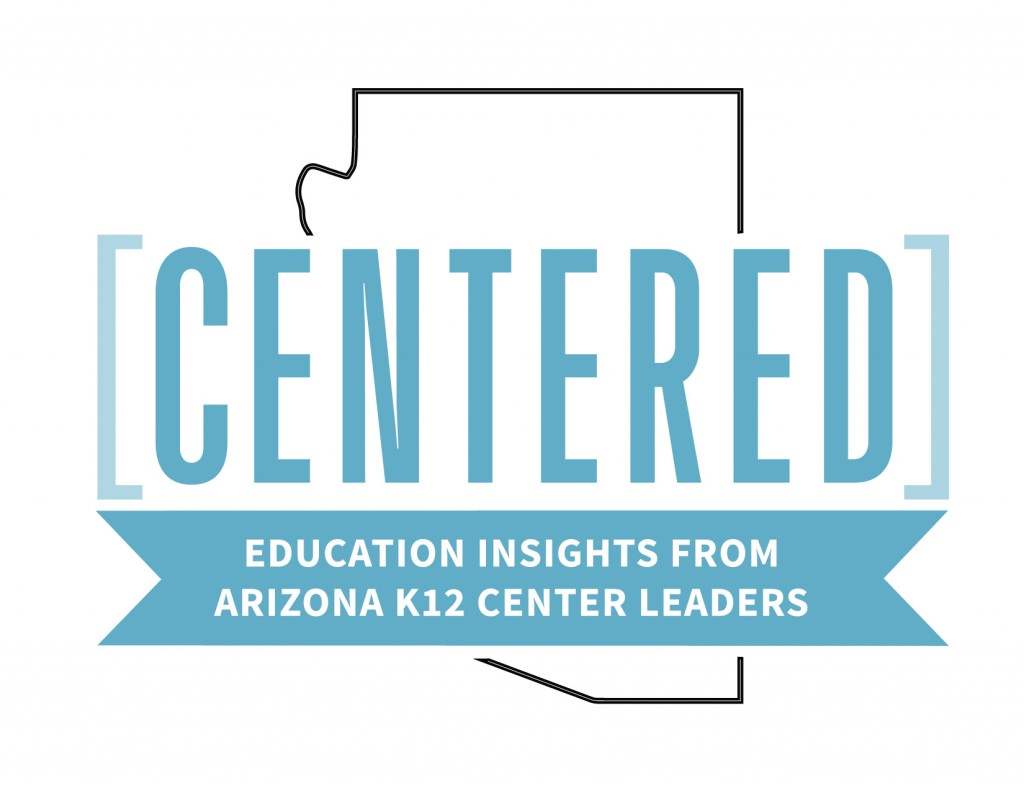Centered
Centered: The Arizona K12 Center’s Executive Director, Dr. Kathy Wiebke, offers her education insights in this monthly column. In 1996, I became Arizona’s first National Board Certified Teacher. After 10 years, Board-certified teachers must decide whether or not they wish to pursue recertification.
Apr 15, 2016
Centered: The Arizona K12 Center’s Executive Director, Dr. Kathy Wiebke, offers her education insights in this monthly column.
In 1996, I became Arizona’s first National Board Certified Teacher. After 10 years, Board-certified teachers must decide whether or not they wish to pursue recertification. In 2006, I renewed for the first time and now, in 2016, I am about to embark on my second renewal. To achieve recertification, I must demonstrate that I am still an accomplished teacher. Since I am no longer teaching in a school setting, I’m able to “borrow” a class. Therefore, I’ve spent the past month working with a teacher at the school where I first became Board-certified.
I’d be lying if I said the thought of teaching a room full of sixth graders, after being away so long, was not a bit daunting. As I prepared to spend time in the classroom, a million questions flooded my mind: Do I still have the skills necessary to not only engage these students but also to cause learning? Will I be able to teach to the newer and more rigorous standards? As an outsider, are the students going to respect me?
Upon finishing my visit, I couldn’t help but realize how insightful her students were. They were kind, inquisitive, and genuinely motivated to learn. Eagerly, they asked questions and helped one another. They weren’t afraid to approach me for help and seemed pleased to have me there. The teacher kept apologizing for the mess, but in my eyes, what she was referring to was authentic learning, showcased by the student projects that filled the room. While I watched her interact with her kids, I saw she created a safe learning environment where students were challenged to think and learn.
As I left the familiar building, I started to reflect on the last 20 years and the changes in our schools. The same high level of engagement remains, but it’s focused on a new set of standards. And, you know what? Kids are learning.
Many changes have taken place in the last 20 years. For example, the rooms have way too many students. I asked the teacher what happened to the desks and she said they had to get tables because there were too many students. Personally, I prefer tables for learning, but I would have liked to hear they were placed there to meet learning needs, rather than to corral more kids into a single room.
What else has changed? The computers are thinner and kids now have Chromebooks. Outside, the parking lot is filled with solar panels. And, sadly, you don’t just sign in and walk into this school. Instead, the doors are locked and you must be buzzed in.
Amidst the many transformations, something remains the same — educators are just as dedicated as ever before. I was amazed at the number of familiar faces I saw at the school I used to call my own. When the teacher talked about her colleagues she communicated their expertise and skills. As I drove away, I left with a renewed sense of hope for Arizona’s schools.
Unfortunately, that hope was quickly shattered a few days later when I received a nvarchar(max) message from a teacher in another part of the state. Once again, educators were angry they weren’t getting a raise. Additionally, the new benefits package will significantly reduce their already-low salaries. One teacher has a master’s degree and 13 years of teaching experience in the district, and yet this professional’s take-home pay will go from $888.53 every two weeks to $480.53. These are teachers who have not seen a raise in the last nine years!
Sadly, this continues to be the reality throughout the state, as massive budget cuts take a toll. As of December 1, there were 1,200 teaching vacancies in Arizona’s classrooms. More staggering is that this number is higher than the 800 vacancies reported in August. It’s not getting better; it is getting worse!
What I have come to realize is that many teachers can no longer afford to stay in the profession and yet they are not leaving in droves. When I see signs that say 13 years of experience, 19 years of experience, 15 years of experience, and so on, despite no raise in nine years … I can’t help but wonder how these teachers have kept students front and center to the detriment of their own children and families. Would I have done the same? When are we going to realize that when we take care of the teachers they, in turn, will take care of our students?
I often worry and wonder who will teach our children. I believe we have a social contract and a moral obligation to provide a strong, public education for the next generation of Arizona’s students. We say we want a world-class education, but I continue to be stymied at how we will get there without a strong investment in the system.
There have been many changes over the past 20 years, but two things remain consistent — a teacher’s desire to teach and our unwillingness to invest in Arizona’s schools. Does anyone else wonder if we’re at a tipping point?



